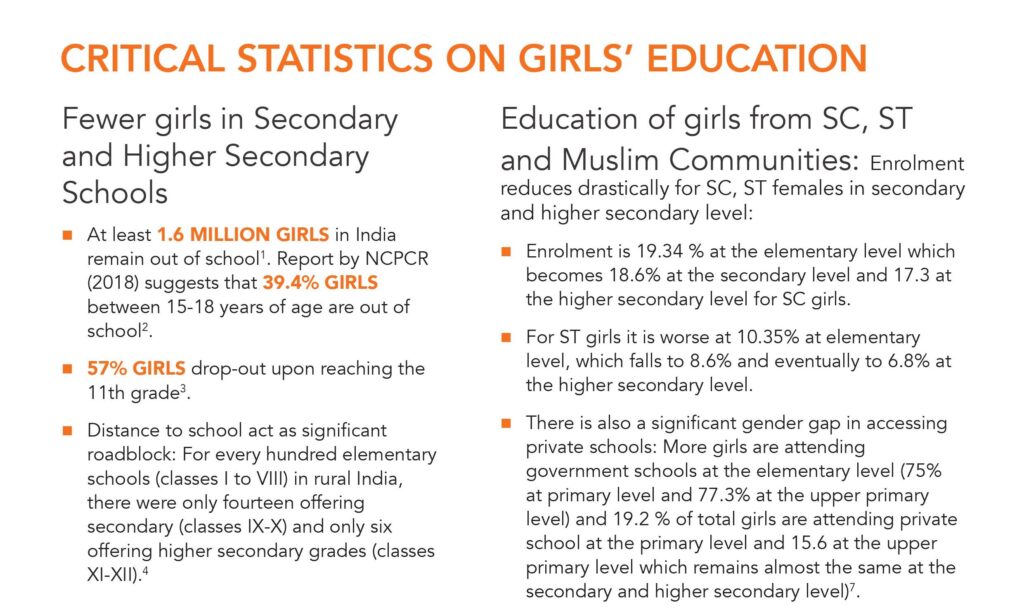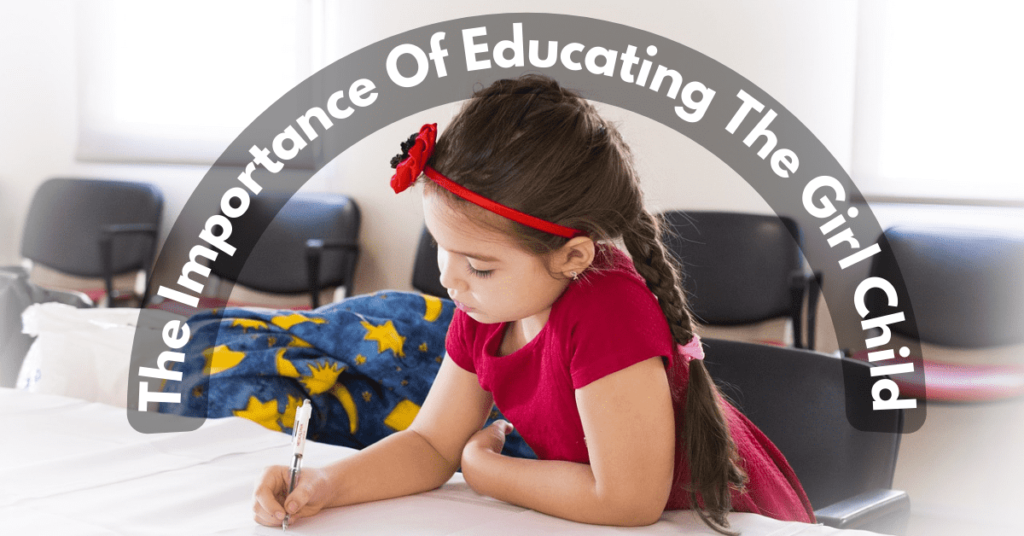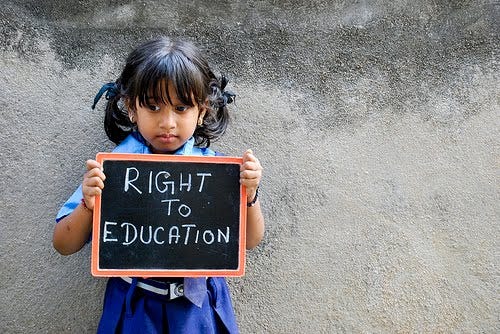Our constitution gives equal rights to both men and women in every sphere, including the right to education. However, the ground reality is very different. A girl child in India is often seen as a liability, a ‘burden’ to pass on. Given the prevailing influence of patriarchal values, right from their birth, a lot many girls bear the brunt of gender inequality, gender stereotypes and are treated inferiorly, as compared to boys.
How can we hope for India to progress when half of our society remains under the shadow of discrimination? To find answers, we must first understand the key difficulties that a girl child faces and why the education of a girl child is important in society.

The numbers are no better in other parts of the world. On average 129 million girls are out of school, including 32 million of primary school age, 30 million of lower-secondary school age, and 67 million of upper-secondary school age. In war-torn countries, these numbers are twice as high
Importance of Girl Child Education

Girl child education holds immense importance in our society for several compelling reasons:
- Empowerment : Education equips girls with knowledge, skills, and confidence, enabling them to make informed life decisions. It fosters independence and self-reliance, empowering them to pursue their dreams and aspirations.
- Gender Equality: Education is a fundamental tool for promoting gender equality. It helps challenge and dismantle traditional gender norms and stereotypes, fostering a more inclusive and equitable society.
- Economic Prosperity: Educated girls are more likely to find better employment opportunities and earn higher incomes. Therefore, it improves their lives and contributes to the economic growth of their communities and nations.
- Health and Well-being: Education is closely linked to better health outcomes. Educated girls tend to have smaller families, seek medical care when needed, and make healthier choices for themselves and their families.
- Social Development: An educated girl is more likely to actively engage in her community and participate in social and political activities. Hence, contributes to the overall development and progress of society.
- Reducing Child Marriage: Education is a potent tool in the fight against child marriage. When girls are in school, they are less likely to be married off at a young age.
- Breaking the Cycle of Poverty: When girls are educated, they are better equipped to escape poverty. They can secure stable employment and provide a brighter future for their families. “Educate a girl, and you empower a community.” – Greg Mortenson
- Improved Literacy Rates: Educating girls contributes to higher literacy rates, which benefits society. It enables communities to better understand and address critical issues.
- Global Progress: Advancing girl child education is a national concern and a global imperative. It is vital for achieving the United Nations Sustainable Development Goals, particularly Goal 4 (Quality Education) and Goal 5 (Gender Equality).
Joining Hands for Change
The importance of girl child education cannot be overstated. It catalyzes positive change, driving progress in education, gender equality, health, and economic development.
We invite you to join us in this transformative journey, where education knows no gender boundaries and dreams know no limits. Together, we can build a brighter, more equal future for all. Let’s empower our girls and, in doing so, empower our society and our world.

